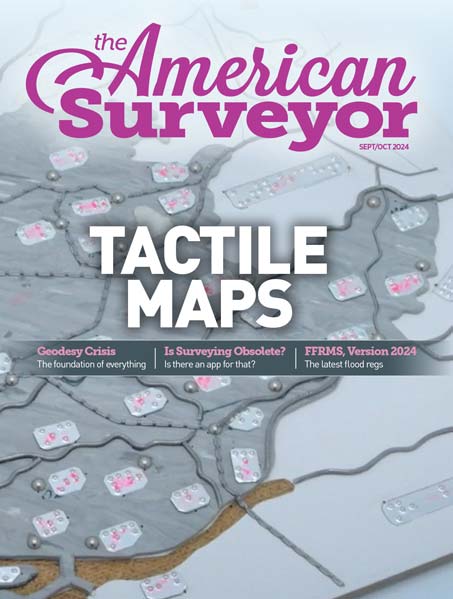The digitization of construction drawings, GIS maps and workflows have led to a myriad of changes in the way today’s large format printing equipment works and how quickly equipment updates need to occur. Ever-changing application and software updates and operating systems functionality have made compatibility with new technology a critical consideration when purchasing a new or used large format printer.
With the price of used printers often 50% – 60% of the original manufacturer’s suggested retail price, the perceived savings can be quite attractive. However, latent hidden costs associated with used large format printers can prevent users from converting these into actual savings. Canon Solutions America, Inc., a wholly owned subsidiary of Canon U.S.A, explores eight key factors to consider that can add increased risk to purchasing a used wide format printer in today’s complex digital world.
1. Security: To be optimally network and security compatible with many of the latest IT requirements, a large format printer’s controller should be running a Windows® 7 operating system or higher. While older printer controllers will not meet these requirements, some may have compatible upgrades. Additionally, older printers often do not provide advanced security features, which may be required for some printing environments.
2. Software Licenses: Some software licenses are non-transferrable. If that is the case, the cost savings from purchasing used equipment may be offset by the cost of additional software license fees or claims of infringement.
3. File Processing Speeds: Some older printers have slower processing speeds and smaller memories than newer models. This means files will take longer to process before printing, especially when printing today’s larger multi-page PDF, GIS or BIM files.
4. Printer Drivers: Manufacturers typically do not update print drivers for discontinued equipment. As a result, drivers for older systems can be a major challenge or may not work at all when operating systems are updated at individual workstations. This means that printing from CAD or Windows applications may not be fully supported, resulting in prints that are missing important fonts, layers, line weights, etc.
5. Print Quality and Color Output: Older used printers may print at a lower resolution, making it more difficult to render the quality required with complex black & white and color files. Additionally, older models may be monochrome only and cannot, therefore, meet your color printing needs.
6. Service and Parts: If you do not buy a used printer from the manufacturer or an authorized dealer, service support and parts availability may be an issue. Older equipment may require more parts replacement and hardware support leading to more downtime and a higher frequency of service calls. Additionally, since older equipment may be closer to obsolescence, parts availability may diminish over time.
7. Financing: Leasing used large format printers usually carries higher financing rates. This can spread the cost of your investment over several years, but it also locks you into already old technology for the term of the lease, exacerbating obsolescence issues.
8. Total Operating Cost: In addition to the purchase price of a printer, daily operating costs must be considered. For example, if your print volume is low, the printer will likely be in stand-by mode most of the day. Older equipment is often not as energy efficient as comparable new models, which can result in needless energy costs over time. Additionally, many of the considerations already described have cost implications – either directly or as a result of lost time.
Only you can determine if there is sufficient reward for your business by purchasing a used large format printer. Before taking advantage of what you might think is a good deal, consider how technology has changed over the past several years and how it is likely to change in the future. Get as much information on the used equipment as possible to enable you to determine if the initial savings are worth the risks.
To learn more, please download Canon Solutions America’s “Buying Used Wide Format Printers – What You Should Know” Buyer’s Guide.
About Canon Solutions America, Inc.
Combining the strengths of the former Canon Business Solutions, Inc. and Océ North America, Inc., Canon Solutions America provides industry leading enterprise services, advanced production print technology and large format solutions supported by exceptional professional service offerings. Canon Solutions America helps companies of all sizes to improve their business by increasing efficiency, controlling costs and becoming more environmentally conscious. A wholly owned subsidiary of Canon U.S.A, Inc. Canon Solutions America is headquartered in Melville, NY and has nearly 7,000 employees in over 150 offices across the country. For more information on Canon Solutions America, please visit www.csa.canon.com.
